Two corpses in the castle Mayerling
"Do not allow anyone in my room, even the emperor himself"
So ordered the Archduke Rudolph about two o'clock in the morning, after which he went into the bedroom. The valet Johann Loshek did not notice anything suspicious in the order, because the heir to the throne in the bedroom was waiting for his mistress, Baroness Maria Vecher.
The couple arrived at the hunting lodge, located twenty-five kilometers from Vienna, another twenty-eighth of January. And the heir was unguarded. According to the official version, he came to hunt along with his friend Count Hoyos and a relative of Prince of Coburg. Being in the castle of Mary kept from the guests in the strictest confidence. She was secretly brought to Mayerling and hid in one of the bedrooms. In general, only one proven and reliable person, Loshek, knew about being in the castle of the young mistress of the Archduke.
In the morning the valet tried to wake the owner, but how much he did not knock on the door, there was no answer. Frightened Loshek turned for help to Count Joseph Hoyos and Prince of Coburg. At the same time, he revealed to them the secret that in the bedroom the crown prince is not alone, but with a woman. The count and the prince ordered the valet to break the lock or knock the door. Loshek executed an order with an ax.
When the men entered the bedroom, they saw Rudolph sitting (according to another version - lying) on the edge of the bed. His head was down and blood was dripping from his open mouth. Near the crown prince on the table were a glass and a mirror. The valet first thought that the heir to the throne had taken poison. For example, strychnine, which causes bleeding. In addition to Rudolph, on the bed was the breathless body of Maria Vechera. Since the windows in the room were shuttered, due to poor visibility, the men did not examine the bodies in detail. They thought that the lover first killed Rudolph, and then she committed suicide.
Count Hoyos immediately went to Vienna to report the terrible news. However, he did not have the courage to tell the emperor what had happened. Therefore, his mother, Empress Elizabeth, was the first to know about the death of her son. And he told her the first version, they say, Evenings poisoned himself and Rudolph. Elizabeth spoke about the tragedy of Franz Joseph. Then she was met by Maria’s mother, Baroness Helena. The Empress confirmed the death of the girl, after which she said: “But remember, Rudolph died of a heart attack!”
The imperial family made every effort so that no one would know about the fatal event in the Vienna Woods. Local newspapers appeared first with headlines about a heart attack, then information appeared about the "random shot." It is curious that not a word was said about Maria the Evening.
Soon, a commission headed by life doctor Hofrat von Winderhofer arrived in Mayerling. He noticed a revolver on the floor, which was not mentioned by either Loshk or Hoyos. It turned out that due to poor lighting they simply did not see him. Von Winderhofer established that the crown prince and his girlfriend were killed not because of the poison effect (by the way, there was clear water in the glass, no toxic substances were found in it), but from a gunshot wound to the temporal part of the head. The room was found and two shells.
When the emperor learned that his son had committed suicide, he was shocked. The news that Rudolph shot himself made a much greater impression on him than the death of the heir. The emperor was confident that the crown prince took with him to the next world his "girl." At first, Franz Joseph wanted to hide suicide, but the ministers persuaded him to tell the truth, because no one in the country believed in the version of a heart attack.
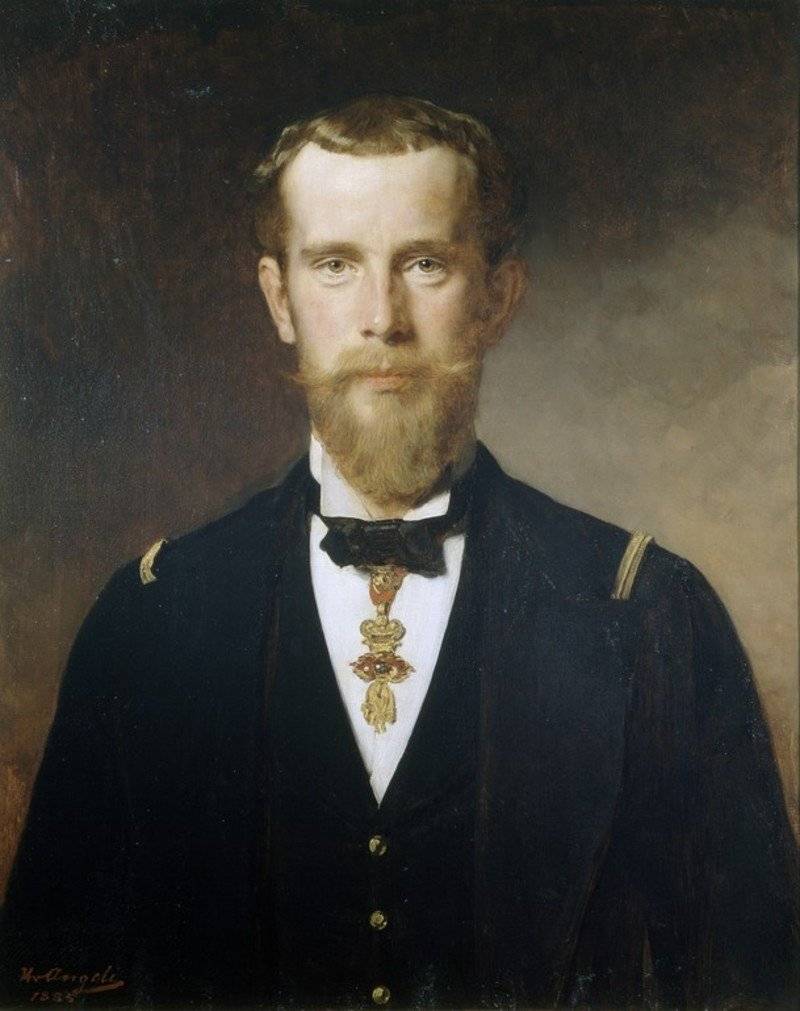
Soon the Vienna newspaper published an article about the tragedy in the imperial house. In the article, besides describing the last day of Rudolph’s life, there was also the conclusion of the medical commission. It said that the study of the brain of the crown prince revealed "his pathological changes that are directly related to the unstable psyche." And the fact of suicide was explained by “painful imbalance”.
The conclusion of the medical commission only confirmed the empress's fears. She was terrified that traditional closely related marriages would affect her children. After the results were announced, Elizabeth said: “Why did Franz Joseph go to my father’s house once, why did I see him and why did I have to meet him?”
Kronprinz against all
Rudolph was the only son of the emperor, so on his shoulders already from his early years lay a heavy burden in the form of a huge state. The heir was raised in such a way that he would never forget - a multilingual country that occupies most of Central Europe will once only submit to it. The father insisted on it. As well as the fact that Rudolph from childhood began to devote to military affairs. According to Franz Joseph, only a large and strong army could keep the empire afloat, preserving its dualistic monarchy. Therefore, the archduke knew perfectly well what the army and soldiers' life were.
As a counterbalance to the strict father, the mother spoke. It was she who, for her son, invited the teacher Joseph Latour von Turnburg. Elizabeth wanted Rudolph to receive not only "Spartan education", and learn the humanities and get acquainted with humanistic views. And the crown prince is imbued. He concluded that it was time for a change. In his academic work, fifteen-year-old Rudolph wrote: “The Empire is just powerful ruins, still standing, but sentenced to destruction by time. Although the monarchy was held for hundreds of years while people blindly recognized its power, now its term has expired. All mankind is moving towards freedom, and in the next storm this ship is predetermined by the fate to sink. ”
In addition, the crown prince said that the father’s state has an “unpleasant smell of staleness and decomposition”. Such thoughts of the sole heir did not go unnoticed for Franz Joseph. Therefore, he voluntarily decided to remove him from any public affairs.
Father's deed did not surprise Rudolph. On the contrary, he, as if inspired by broken chains, began to criticize his royal relative and the empire with renewed vigor. The Archduke sent his father letters with enviable regularity, in which he tried to convince him that the time of the Habsburgs had passed, a wave of democracy was replacing him. Franz Joseph read these messages very rarely, considering them to be delusions. However, it was much more difficult to miss the materials of his son, published on the pages of “Neues Wiener Tagblatt”. Rudolph became a full-fledged author of a radical publication, although he was published there either under a pseudonym or anonymously. And it greatly annoyed the monarch. He especially feared that soon the personality of the zealous criticism of the empire would be revealed. This is what happened. At first this became known in Vienna, then the news reached Berlin. Germany quickly responded to the behavior of the heir to the Austro-Hungarian Empire. Chancellor Bismarck ordered agents to monitor the potentially dangerous crown prince. The fact is that Rudolf openly spoke against the rapprochement of his country with Germany. In his opinion, Austria-Hungary had to establish friendly relations with the Russian Empire, as well as maintain the Slavic part of the population of a huge country. All this worried Bismarck.
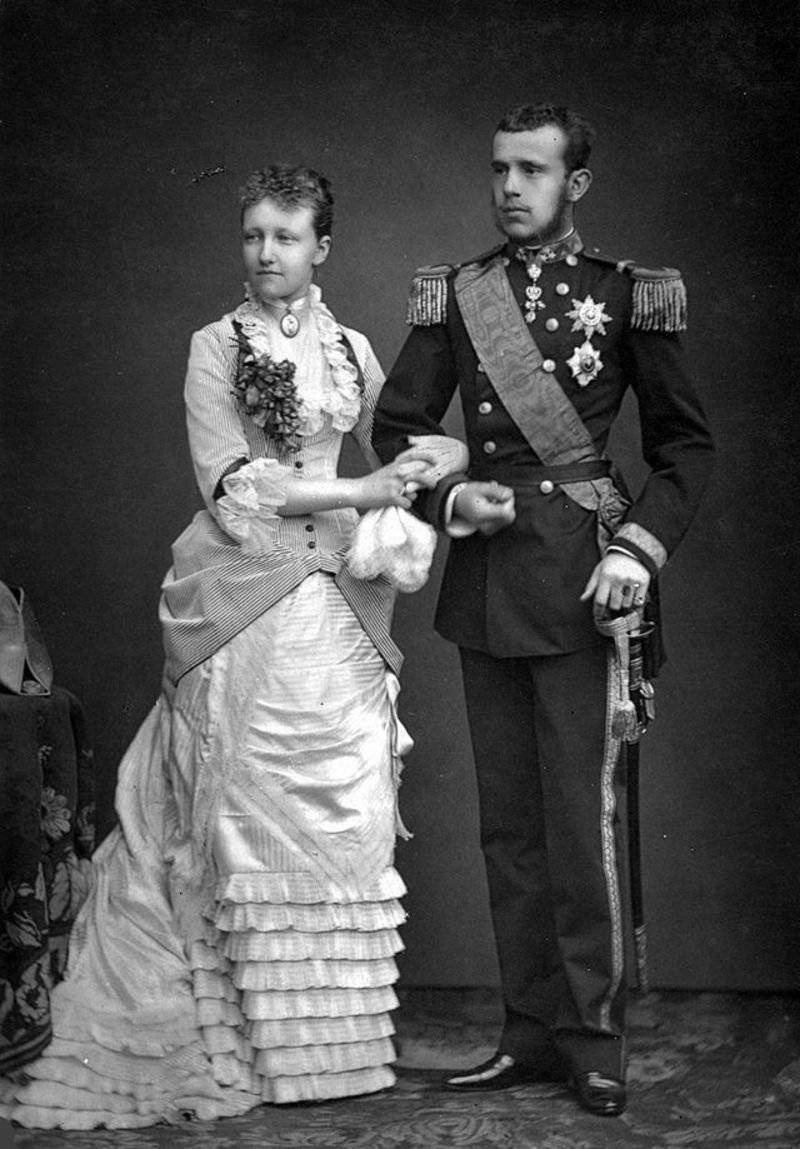
Rudolph believed that Europe would soon change, because there were two other heirs who supported his point of view. It is about the German Frederick and the British Edward. But the dreams of the Austrian did not come true. The first died of cancer a year after the coronation. The new throne was occupied by Wilhelm II, who held polar views. The second is firmly entrenched in the heirs, his mother - Queen Victoria - rules the country until the 1901 year. And Rudolph felt single and outcast in the high society of Europe. And the growing rapprochement with the Germans only aggravated the situation. In the end, he realized and acknowledged his defeat in the political arena. Since Rudolph did not see a global goal in life anymore, he was overwhelmed by a powerful depression. And the heir, as they say, hit the wind. Even his wife, Princess Stephanie (they married in 1881), the daughter of the Belgian king, did not stop him from boiling over. And the only child - a girl - did not contribute to the strengthening of marriage. Most likely, Rudolph infected his wife with a sexually transmitted disease, due to which she could no longer have children. But they preserved the appearance of a happy marriage, although they lived in separate chambers.
Thought about suicide increasingly visited the crown prince. But he did not want to die alone. Therefore, he first spoke about his desire to Mitzi Caspar - his mistress, who was listed in retinue as an "au pair". But Caspar refused.
Soon Rudolph (thanks to the efforts of the Prince of Wales) had a new passion - Baroness Maria Vecher. She asked to call herself Mary in English manners. Countess Larish-Wallersee said that "because of a flexible, well-developed figure," Maria looked older than her seventeen years. She also noted that the Baroness had a "graceful, incredibly seductive walk."
Of course, Rudolph could not miss such a woman. He was not embarrassed by the fact that by that time the Baroness already had several influential lovers. Their romance developed rapidly. Once, Maria found a pistol in Rudolph's office and a skull next to him. She took it and began to examine it. At that moment the crown prince entered the office. To his question about death, the girl replied that she was not afraid of her.
Soon Rudolph gave her a ring with engraved letters ILVBIDT. This abbreviation stands for “In Liebe Vereint Bis In Den Tod” (“Linked to death by love”). Evenings, of course, accepted a gift and wrote to her governess: “If I could give my life for his happiness, I would gladly do it, because I don’t value my life ... After several happy hours in an unknown place, both of us will die. "
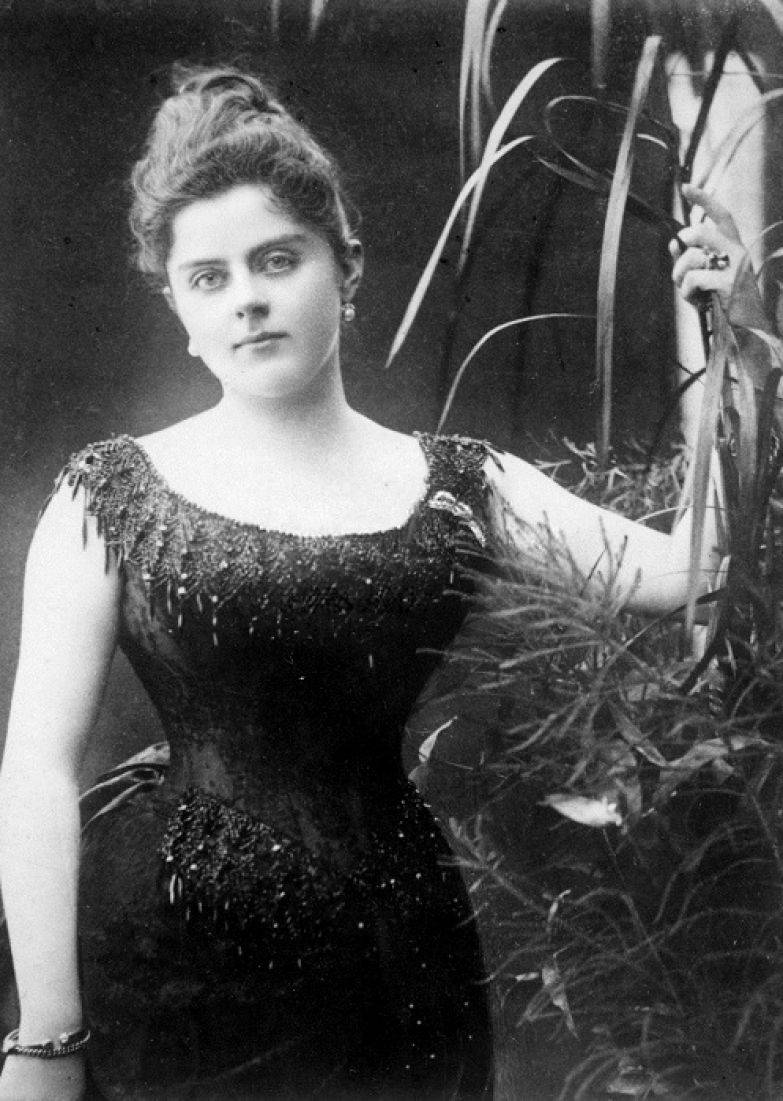
The Kronprinz and the Baroness made a suicide agreement. This happened around mid-January 1889. In response to the donated ring, Maria presented her lover with a gold cigarette case with the inscription “In gratitude to fate”.
In his spare time, Rudolph continued to work on the illustrated history The Austro-Hungarian Empire, and also conducted an active correspondence with the Hungarian separatists. In the letters, he expressed his patronage to them and sympathized with the Austrian dictatorship. Rumors began to spread around the country that Rudolph wanted to become the ruler of Hungary's breakaway empire. Emperor Franz-Joseph closely watched his son's renewed political activity, awaiting betrayal. One way or another, they met at the end of January. What the crowned relatives talked about that evening is not known for sure. According to some researchers, the conversation began with the question of marriage with Stephanie, then was reprimanded for numerous mistresses. At the same time, Franz Joseph said that he was aware of Rudolph’s attempt to divorce his wife, because he had sent a request to the Vatican. And, of course, the emperor could not help talking about the political games of Rudolph. The father tried to warn his son, because friendship with the separatists could not lead to anything good. One of the lackeys heard the emperor cast into the trail of the departing Crown Prince: “You are not worthy of being my heir!”
After this conversation, Rudolph looked "terribly upset, just lost," and his hands shook. It was then that the heir seemed to come to the conclusion that it was time to leave this mortal world. The evenings agreed to share the fate of the Archduke. Separately from each other, they arrived at a hunting lodge ...
In the strictest secrecy
Before suicide, Rudolph wrote several letters. They were addressed to the mother, his wife, Losheku, as well as Mitzi Caspar. But he did not tell any of them the true cause of suicide. Here is what Rudolph wrote to Stephanie: “Now you are free from my presence and torment. I calmly meet death, as this is the only way to save my good name. ” The crown prince thanked Loeshek for his impeccable service. Most likely, he wrote a letter to his mother after “helping” Mary to part with life: “I have no right to live on. I killed…"
As for the father, Rudolph did not write him a line. Apparently, this was not required, since all points above the “and” were placed during a difficult conversation for both men.
When the cause of the death of the heir became well-known, high-ranking representatives of the clergy refused to bury him according to the church rite. However, Franz Joseph insisted on it. He also ordered as soon as possible to get rid of the body of the Evenings. According to the emperor, she should have just disappeared, as well as all the memories of the young baroness. Therefore, her relatives arrived in Mayerling instead of the hearse for Maria. They washed away the blood from the Baroness, put her in a coat and hat, and then "brought" her hands out of the castle and put her in a carriage. And so that the body did not fall on the way, a stick was attached to the dress. Thus, the illusion was created that evenings are alive. Maria was taken to the Heiligenkreuz Monastery, where she was to be buried in secret. This is what one of the police officers on duty recalled: “As soon as the clock on the tower struck midnight, a crew appeared, and not a hearse, as I expected. When I came out in the dark to see who had arrived, a devilish caricature appeared before me. Between the two men, on the back bench, sat Maria Evenings, fully dressed, haughtily straight. But completely dead! ” After a quick and secret funeral, the police sent an encrypted telegram to Vienna: "Everything is done." Death certificate, of course, was not issued to relatives of Mary. Only a few weeks later, an entry was made in her parish book about her death. True, information about the death of the Baroness still leaked. And, despite the efforts of the imperial censors, one newspaper wrote that Nights died suddenly in Venice, and they buried her in a family crypt located in Bohemia. Another curious thing is that while Franz Joseph was in power, the name of the baroness never again appeared in the newspapers.
Rudolph was buried in the family tomb of the Habsburgs in the church of the Capuchin Fathers. He was dressed in a general's uniform, hid a wound on his head and put up for parting. Several thousand people gathered for the ceremony. No one was forbidden to say goodbye to the crown prince, except for foreigners. They were not allowed to the funeral. The emperor even prevented the arrival of Wilhelm II: “Accept our warmest thanks for your true friendship and for your intention to come here. And if I ask you not to do this, you can judge how deeply my family is depressed, that even you are compelled to address this request. ” An exception was made only for the royal family of Belgium, and then only at the request of Stephanie.
On Tuesday, February 5th, Vienna stood still. Thousands of people lined up along the streets along which the hearse with the body of Rudolph rode. At the church of the Capuchin Fathers, the funeral procession stopped. According to tradition, the chamberlain of the imperial palace knocked at the gate with a gold staff and informed the monk that he had arrived “Your brother Rudolph. Poor sinner. After that, the door swung open. At the end of the ceremony, Emperor Franz Joseph knelt at the tomb and read the prayer in a whisper. Then he brushed away his tears with a handkerchief and left the church
Franz Joseph ruled the country for a long time. And all this time he tried to hide the true reason for the departure of his son from life. The monarch said this: "Anything is better than the truth." And there were many versions. Among them were those who blamed either the German agents or the Hungarian agents for the death of the Archduke. The former were afraid of a possible change in the political course and did not want to lose a strong ally. The second could take revenge on Rudolf for weakness. Some researchers believe that Maria Vechery was precisely the secret agent who was instructed to remove the “inconvenient” heir. But what really happened on the fateful night will forever remain a mystery.
Now the hunting lodge is a Carmelite monastery. And the room in which Rudolph and Maria died, became a chapel.
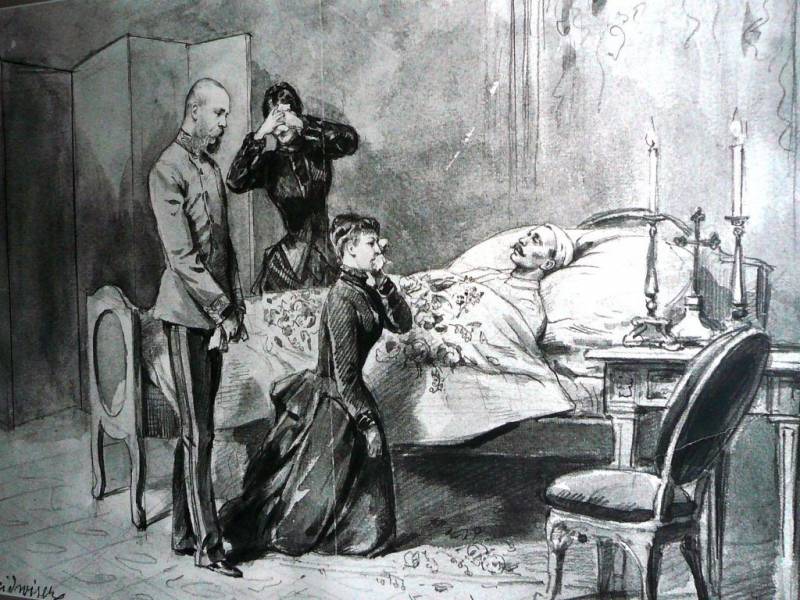
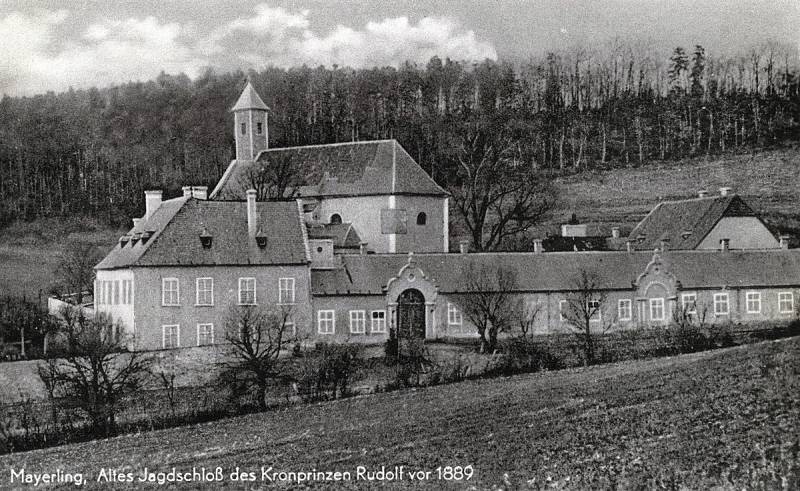
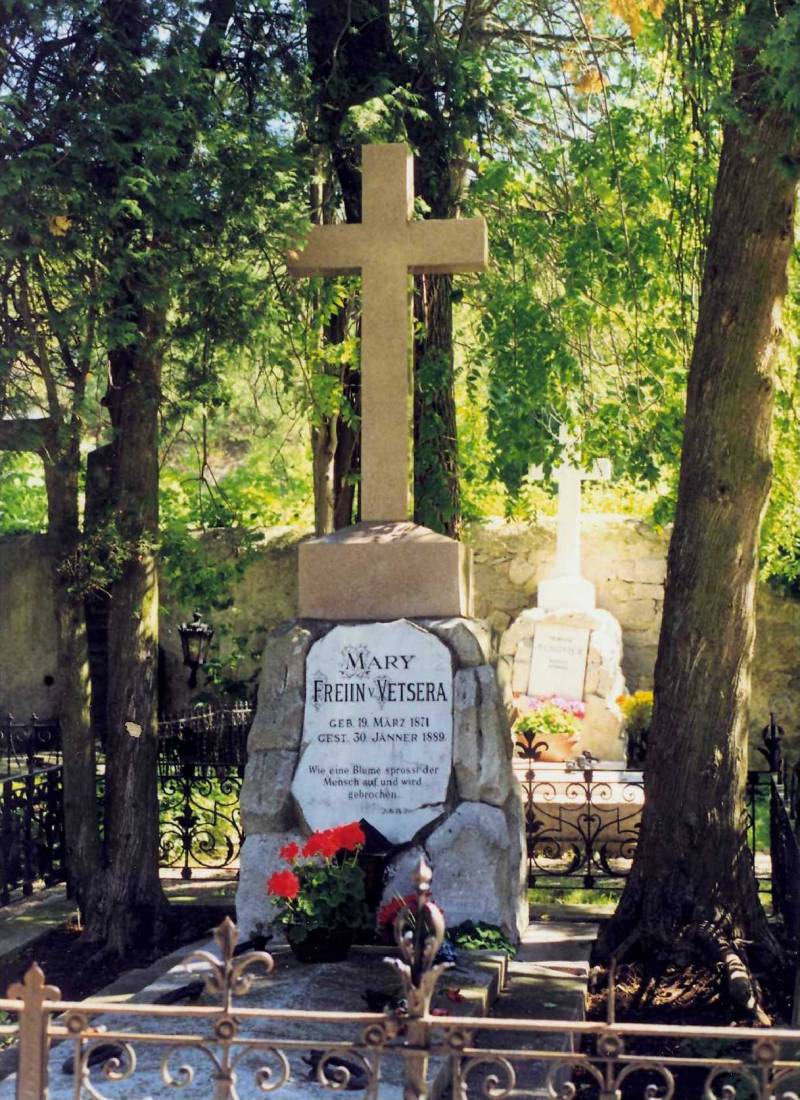
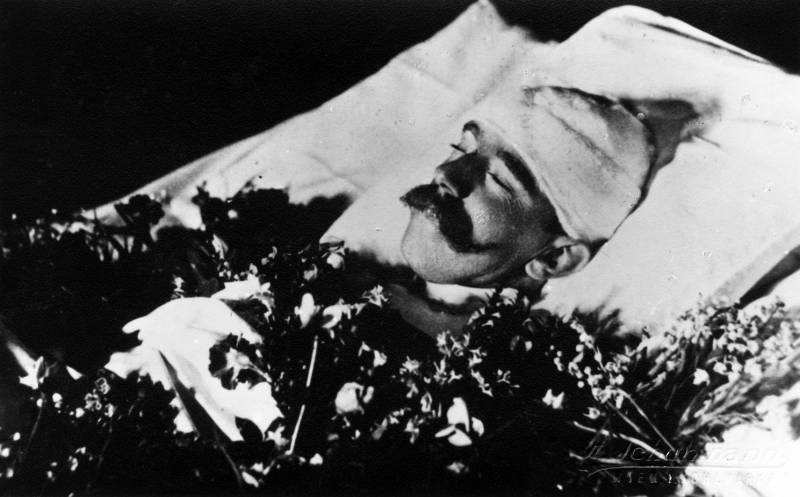
Information